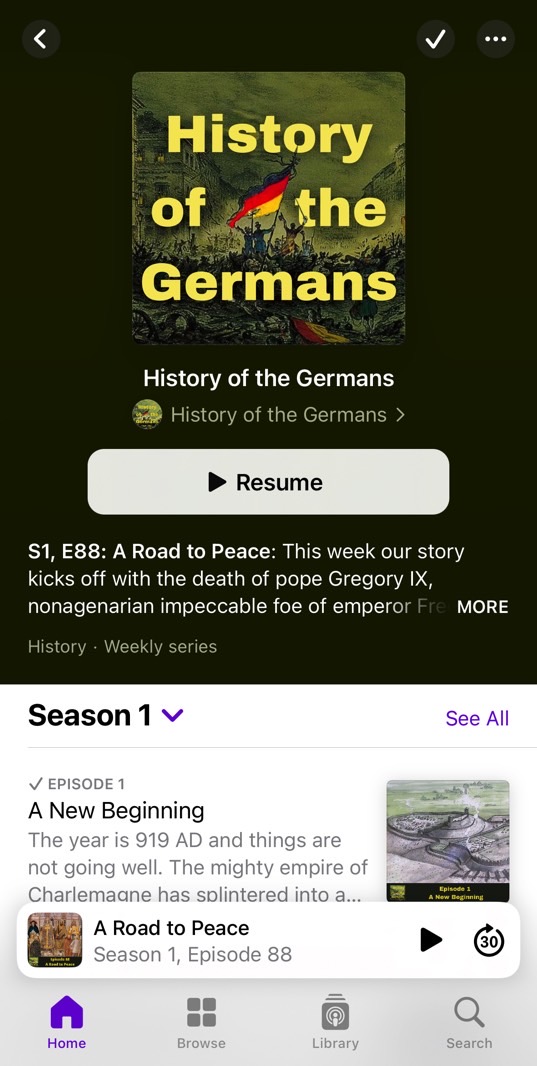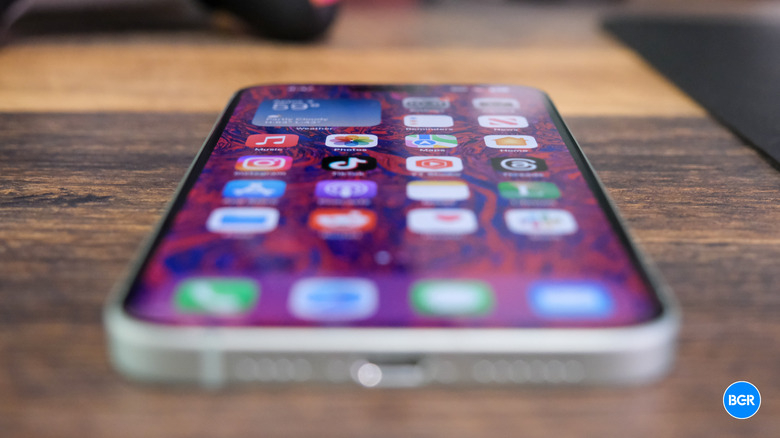I'm Training For A Marathon And Found The Perfect Podcast To Keep My Brain Busy
I started running half-marathons long before the pandemic, but an ankle injury and the pandemic put a kink in my plans. I got back into it a couple of years ago, mostly sticking with 5Ks, but dreaming of returning to 10Ks and half-marathons. Then, something completely reinvigorated my running and fitness routines last year: I made ChatGPT my personal trainer.
The AI helped me fine-tune my training in ways I ignored before. I ran faster and better than ever. By mid-October, I was already running half-marathons comfortably, and my official race time had improved considerably despite not having run one for several years.
However, I still didn't think I could do a marathon after I ran that October race. My opinion changed rather quickly after that, as I decided to give a marathon a go with the help of ChatGPT. It was a mental block, rather than a physical one, you see.
The mind is actually one of the three things you have to train when going into long-distance running. It's not just the heart and the muscles. That's where a surprising podcast has helped me immensely. It's not what I thought I needed for running, but it's absolutely the most fun I've had so far: Meet History of the Germans.
I know. It's not what you might have guessed. It's not funny (well, not usually), it's not about current political events, and it's not topical. But it absolutely works. As the title implies, this is a podcast that history buffs might appreciate. I do not consider myself one, though I do love great history tales.
I came across History of the Germans accidentally after months of trying various "fixes" to keep my mind busy. But I only needed an episode to know this would be my new jam.
I used music streaming and even Netflix documentaries to keep me entertained on most runs. Now, I can't wait to run to listen to the next episodes of History of the Germans. And I can't wait to listen to History of the Germans, which means I have to run. Or walk. Walking is also a big part of my training, and that's where the podcast comes in.
Why is it so good? To answer that question, I'll have to describe my condition first.
Back when I was training for 5Ks all those years ago, boredom was my biggest worry. Not that my heart wouldn't pump blood efficiently or that my legs would tire out. I was worried I would get bored, and that would prevent me from running frequently. Music was how I coped, right until I reached a point where I would go running without anything in my ears.

When I picked up running again, I had the same issue. I knew I needed to keep my mind entertained for at least an hour three to four times a week to get back to half-marathon racing. ChatGPT would not help with that. So, I used Apple Music most of the time.
I then moved to Netflix documentaries as a testbed for audiobooks. I thought I could "read" books while I ran, and documentaries told me I shouldn't. My mind would trail off, and I'd miss parts of a documentary. That's not fun. I certainly don't want to find myself listening to audiobooks only to lose myself in the thoughts-du-jour that my mind decided to suddenly bring up.
So, when History of the Germans presented itself, I decided to give it a try. Did my mind suddenly stop wandering? Absolutely not. And I can safely say I missed some key parts of the stories in the 30+ minute-long episodes. But I didn't mind it.
You see, I don't care enough about the actual history of the Germans to make me rewind the part that I had just skipped. But the podcast is so well done, and the story flows so naturally that I'll get the gist by the end of the episode. Or the series. History of the Germans covers the various rulers of the Holy Roman Empire for the better part of a millennium in great detail.
Even if my mind wanders, it's still curious to see what happens next. All the stories about the realm's kings, princes, and lower lords. Of their wives, children, priests, and serfs. Of knights and merchants. Allies turned into rivals and then allies again. Of futile wars, coronations, and peace treaties.
It's like listening to a real-life version of Game of Thrones, only less explicit and dramatic. And when crusades come up, I draw parallels to certain movies I love rewatching.
Also, while I wasn't set to learn more about the history of Germans per se, the podcast made me realize how important this part of the history is for the current state of affairs in the entire European region and the world.
How the politics of the German Roman Empire, intertwined with the papacy at every step of the way, influenced the entire region to this day. And I've hardly reached the 1,300s. I have a long way to go until I get to more modern times.

Currently, the show has 145 episodes ready to play, with a new one added weekly. That's good, as I'm halfway through my marathon training. I can currently run 30K comfortably, which tells me that I can also go for the extra 10K I need to complete a race. However, I'm not quite there yet.
As for who is behind the History of the Germans, I'll point you to Dirk Hoffmann-Becking, a German-born UK citizen who is an amateur history geek, as he describes himself on the official History of the Germans website.
I bring up Hoffmann-Becking because it's not just the stories that help me during my running. It's also the host's calming voice. The steady tone and the cadence are always there, even if I don't pay attention to what he's saying as I contemplate today's events or attempt to calculate my current race pace.
That said, History of the Germans won't be for everyone. But I've already started thinking about what I'll do when I inevitably finish it. And I think I'm only scratching the surface, as there are plenty of similar history podcasts out there, with Hoffmann-Becking recommending several of them along the way.
You can listen to the podcast on the History of the Germans website or anywhere you can find podcasts. I'm using Apple's official podcast app for it. The website provides more support for each episode, complete with images and maps for the true history buffs.
I, however, rarely check the website. That's because I don't want to consume this content while I'm at home. It works too well for my running training.
